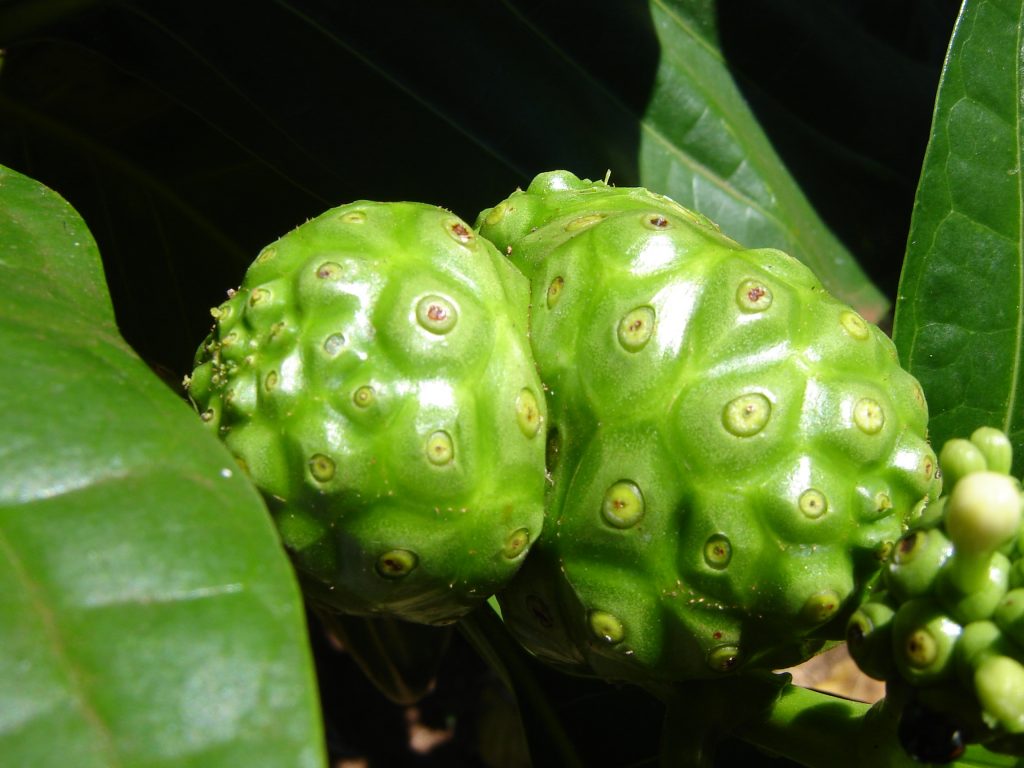
Features
Research
Noni and kariyat bioextracts improve immunity of tilapia fingerlings
Two herbal bio-extracts, known to enhance the immunity system of humans, have been found to have the same effect on Nile tilapia fingerlings.
February 1, 2018 By Ruby Gonzalez
 Bioextracts from noni (pictured) and kariyat have been found to have health-enhancing effect on Nile tilapia fingerlings
Bioextracts from noni (pictured) and kariyat have been found to have health-enhancing effect on Nile tilapia fingerlings A study, Effect of herbal bioextract on survival rate of Nile tilapia fingerlings injected with Aeromonas hydrophila, was conducted by Dr. Pattareeya Ponza et al, who are with the Program of Fisheries Science, Department of Agricultural Science, Faculty of Agriculture, Natural Resource and Environment, Naresuan University in Phitsanulok province, Thailand.
“For this study, kariyat, (Andrographis paniculata), and noni, (Morinda citrifolia L.), bio-extracts were mixed to commercial feed and fed to tilapia fingerlings, one gram each, for 60 days. Results showed that growth of fish fed with kariyat and noni were better than fish in the control group which didn’t have bio-extracts.
“When challenged with a pathogen, fish in the control group showed higher mortality than the fish fed with bio-extracts. So, this may suggest that application of the bio-extracts would be beneficial to fish’s health,” Ponza told Hatchery International.
She presented the study at Aquaculture Asia-Pacific 2017 held in Kuala Lumpur during July.
Noni contains the phytochemical, scopoletin, which has anti-bacterial activity, anti-inflammatory effects and regulates blood pressure. Kariyat contains andrographolide, a phytochemical compound which has anti-cancer properties.
To extract scopoletin from the noni, Ponza used a method of fermenting it with molasses and water for 30 days. Kariyat was processed in the same way.
She said herbs with potent anti-parasitic or anti-bacterial effects could be used not only as bio-extracts but also in the form of powder, aqueous extraction, such as hot water extraction, or ethanol or methanol extraction. She noted, though, “Optimization of these methods needs to be investigated prior to use since some could be harmful to fish.”
With the consumers’ growing consciousness about the safety and quality of food from farm to table, the reduction of chemical and drug usage during the grow-out period of livestock and fish is always good news.
Ponza’s study also has another practical facet: “In my study, both herbs were used as bio-extracts applied to commercial pelleted feed as it was practical for farmers and there was the availability of herbs.
“It was done to promote fish health in a growing system, where using antibiotics or chemicals are limited. It is a practical method for small-scale farmers or an organic farm,” she noted.
Print this page
Advertisement
- Research projects to benefit marine hatcheries
- Percid group unites European pikeperch hatchery managers for hands-on workshop





